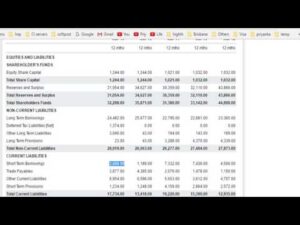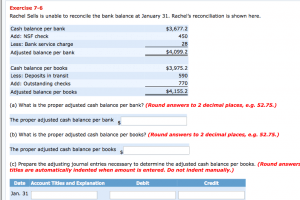
You might consider upgrading to the Enterprise plan to offer customer and carrier self-service portals. Customers can log in to view their account information, shipments, and invoices, whereas carriers can access available loads, shipments you have dispatched with them, and amounts you owe them. Quickbooks does not have a specific IFTA option, but by briefly customizing the software, this problem can be easily rectified. Trucking companies require various types of insurance coverage, from liability insurance to cargo insurance.
Can I deduct my truck payment as an expense?
Ideally, this would address unique payroll scenarios and fulfill trucking-specific requirements while also simplifying salary calculations from the back end. Depending on the size and needs of your business, accumulated depreciation you may be suited better with software that provides the basics or one with trucking management features. Processing payroll for a trucking company can be different than most other industries.
- However, it is important to note that bookkeeping service differs from accounting service.
- They also don’t come with any of the fancy bells and whistles that bookkeeping apps and software do.
- The accounting software recommended in this article comes with mobile apps, so even if you’re not at your desk, you have no excuse!
- For example, how do you answer questions about your safety track record or timeliness of delivery?
- We have connections all across the country, and can surely find someone who best fits your needs.
Q7 Trucking Software
Knowing the legal and logistical considerations of starting a trucking business will create a strong foundation for your business’s successful future. Bookmark the FMCSA website and your state Department of Transportation website. These https://www.kelleysbookkeeping.com/ will be your go-to resources for the licenses and permits you need to obtain to start a trucking business in your location. Businesses trust trucking companies with thousands (and sometimes hundreds of thousands) of dollars in products.

Risk Management
So, for example, let’s say you put $100K into the truck, depreciated it $5K, and received a check from the insurance company for $90K. You would have a loss of $5K because you received $90K and your basis in the truck was $95K. If you received a check for $100K, then you would have a $5K gain (other income) because you received $100K and your basis was $95K. In some circumstances, it may be better for your trucking business to invest in separate software for your TMS, trucking, and accounting systems. Don’t wait until tax season rolls around to find a bookkeeping partner you can trust.
How to Start a Trucking Business

With truckers filing taxes quarterly, it’s helpful to make sure your books are tidy and updated at all times. Doing so will help you save time and money, making it a solid baseline for accounting as a truck driver. Technology has grown rapidly and drastically impacted different aspects of society by streamlining various complex processes. Regarding the trucking industry, numerous software currently exists to help truck drivers and owner-operators in different administrative functions, including bookkeeping. Determining this information is advantageous regarding effective decision-making.
TAX, ACCOUNTING, AND CONSULTING SERVICES SPECIFICALLY FOR TRUCKERS
While these platforms might not be loaded with cutting-edge features, they incorporate crucial elements that make bookkeeping easier. Businesses with a more extensive fleet can employ TMS for better control over operation management. Business accounts also foster a certain level of privacy, as business owners need not divulge information about themselves when making a transaction. Most financial institutions offer customers the option of requesting a transaction statement, which is very accurate and explicitly shows a business’s financial records over time. Owner-operators with out-of-date financial records quickly realize how difficult it is to balance the books when transactions compile.
Accounting software is supposed to make managing your business’ finances easier, not harder. However, if you use a user-unfriendly platform, your business will waste time instead of saving it. Fortunately, you don’t have to be an accountant to get accurate numbers about your business. Managers can generate detailed expense and profit and loss reports to make sure their fleet is staying on budget. Clients receive their invoices via email and are free to pay them on whatever device they choose.
Start early, either by managing your books yourself or by seeking professional assistance, and consider using bookkeeping software designed to streamline your financial management. By adopting good bookkeeping practices, you can drive your trucking business towards financial success. Most trucking business owners likely don’t have accounting experience, so the best bookkeeping software for truckers should be easy to understand and use. For as low as $19 per month, you can track business expenses, fuel mileage, trips, and orders for a single truck. It’s an affordable option for small trucking companies needing to track cost per mile and understand which of their loads are the most profitable. Trusted by over 20,000 owner-operators, ATBS has been helping truck drivers manage their books and file taxes since 1998.
Rigbooks aced the pricing category since it’s the most affordable specialized trucking software on our list. It also earned a perfect mark for tracking features and excelled in ease of use due to its simple user interface that is easy to navigate. Tailwind TMS achieved a perfect mark in the trucking category and slightly above-average scores for the other categories.
The bookkeepers are required to summarize the activity of your business regularly into financial reports. These reports showcase the financial position as well as the performance of your business. For example, if you utilize a bookkeeper who offers tax reconciliation services as well as industry benchmarking data, they can help you spot expense documentation you may have forgotten to send. If the average owner-operator is spending 30% of their revenue on fuel, and you only show 10% of revenue spent on fuel, your bookkeeper should be able to alert you to the discrepancy. From there they can figure out if you have not sent all fuel expense documentation that needs to be submitted, or if you simply spent less on fuel. To create a competitive pricing structure, you must start by knowing how much it costs to run your trucking business (your recurring operating costs).
As you hop off your rig after a long, cross-country drive, bookkeeping is likely the last thing on your mind. It’s tedious work, and even if you employ a bookkeeper, you still need to hold onto and organize your documents, cash receipt journals, and receipts book on a regular basis. If you prefer to manage your financial records on your own, there are several ways to go about it. While some may choose to use the traditional pen and paper, it’s better to digitize your records to avoid risking damage or errors in entries.
It may be tedious to record all of your transactions, but come tax season, you’ll thank yourself! By keeping track of every penny you spend and earn, you may be able to find new deductibles and save your business even more money. Now that you know what you need to do, it’s time to start implementing good habits and putting your truck driver accounting processes to the test.
It allows you to keep your financial statements organized and gives you an idea of how your business is performing. As a truck driver, you may have a hard time keeping good records while on the road. That’s why it may be best to look into using a bookkeeping service for your business that works specifically with owner-operator truck drivers.
Putting the task off will increase the likelihood that you’ll forget what payments are for, causing categorization errors that may make you miss out on deductions. The only portion of the insurance settlement that is considered income https://www.intuit-payroll.org/what-is-a-post-closing-trial-balance/ is any amount you received in excess of the truck’s basis. Basis is your total original cost less any depreciation taken on the truck. You will need to record depreciation from the day it went into service until the day of the loss.



